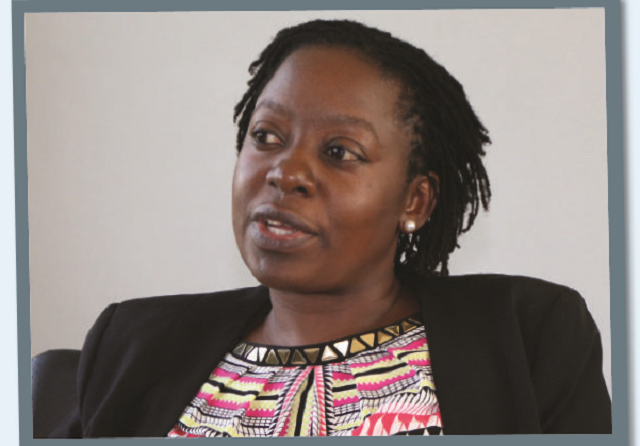
Annette Rumanyika-Mulira is the Managing Director at Stanlib Uganda. She spoke to the Independent’s Agnes E Nantaba about fund and investment management in Uganda
What are the key elements in your management philosophy as a manager?
A managerial role normally comes with responsibilities over the operations of the entire company and you cannot do things on your own. It is a team effort. I work with experts in the various departments to ensure that the company meets its goals.
What is your assessment of fund and investment management in Uganda?
We have been in Uganda since 2001 although handling mostly institutional or large scale investment management. At the time, there were no licensed products that suited individuals save for institutions. However, the policy has since changed and we are witnessing licensing of products that individuals can invest in such as unit trusts. Prior to 2010, we didn’t have a regulation for unit trusts but as of now Capital Markets Authority does the licensing, enabling individuals with little money as Shs 100,000 to invest. Similarly, Ugandans are also increasingly picking interest in saving, with more investment clubs, savings and credit cooperative societies coming up. And once they start growing, it creates a need in the market as they look for professional ways of investing their money.
Two years ago, Stanlib Uganda sought to break barriers in Ugandan Golf through investing in the sport. How far did the initiative go in attracting more clients and unearthing golfing talent in Uganda?
The golfing sponsorship was a one-off marketing strategy in a bid to reach out to people. However, it is difficult to measure its impact though we acknowledge the fact that our brand is more recognizable because our business is based on trust.
Stanlib launched the retail umbrella pension scheme that commenced operations in February 2014. What are the key target areas for the scheme and how has it been received in the market?
The scheme encourages saving money for long-term as opposed to the short term. We are targeting all people including those saving with the National Social Security Fund and other voluntary schemes on the market to come and save as little as Shs 100,000 over a long period of time. We are looking at partnering with our sister company Stanbic bank that has branches all over the company to extend our services closer to the people.
Developing economies like Uganda face a challenge of low growth in assets and client numbers. How are you working to overcome this?
What we have seen in Uganda is that people save but not with financial instruments. Many people save in land, animals and other property. And although there is a lot of wealth in them, they are less secure. Our objective is to create awareness about financial products so that they can know about saving with a fund manager. BOU has done a very good job in financial literacy which is the same with Capital Markets Authority (CMA) but there is a lot more to do.
What other challenges underlie in wealth and investment management in Uganda?
Our markets are still very shallow in terms of instruments to invest in. Our stock market has five active stocks which are too few and as one of the avenues to invest in, we are forced to go to the Nairobi Stock Exchange.
What about the money market fund that was recently launched in Uganda?
The money market fund is a unit trust and collective investment scheme whereby we collect money from different people and pull them into a vehicle and then have it invested as a vehicle as opposed to each individual going around looking for own investment. It is also the commonest way of saving around the world because of the convenience and higher rate of returns that comes with it. The main driver is to provide products for individuals to save their money as we create more options for people to save.
What is your take on the Pension sector liberalisation bill that among others seeks to put pensioners’ savings in the hands of investors and have pensioners’ savings tax free?
In other countries like Kenya, their tax regime exempts their pension schemes from taxation unlike in Uganda where pension is taxed. It is therefore not an incentive for more people to save and yet with a large pool of savings, it would help the government in meeting the costs of setting up large infrastructural projects. The best practice internationally for managing a pension fund is to separate the functions of the administrator from the fund manager and custodian. Currently, NSSF is performing all the roles which in one way may lead to a failure in terms of accountability. We have other umbrella schemes that have started outside NSSF so the scheme should not be linked solely on NSSF but to make the industry better.
****
editor@independent.co.ug
 The Independent Uganda: You get the Truth we Pay the Price
The Independent Uganda: You get the Truth we Pay the Price


